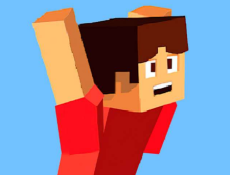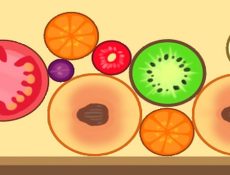Agar.io is a captivating online multiplayer game that simulates a simplistic yet fiercely competitive petri dish environment. Players start as tiny cells, and the primary objective is to consume smaller pellets to increase in size while avoiding being eaten by larger cells. As players navigate the minimalistic map, they must strategically maneuver through both static food pellets and dynamic, player-controlled cells. The larger a cell becomes, the slower it moves, introducing a tactical balance between size and agility. This fundamental gameplay mechanic encourages players to think critically about when to risk growth and when to prioritize survival.
Agar.io
Advertisement

Advertisement
Agar.io is a captivating online multiplayer game that simulates a simplistic yet fiercely competitive petri dish environment. Players start as tiny cells, and the primary objective is to consume smaller pellets to increase in size while avoiding being eaten by larger cells. As players navigate the minimalistic map, they must strategically maneuver through both static food pellets and dynamic, player-controlled cells. The larger a cell becomes, the slower it moves, introducing a tactical balance between size and agility. This fundamental gameplay mechanic encourages players to think critically about when to risk growth and when to prioritize survival.
Mastering Tactics and Timing
In the world of Agar.io, mastering the art of splitting, ejecting mass, and dodging larger cells becomes crucial. Players can split their cell into two to rapidly increase their reach or to escape impending danger, though this can leave them vulnerable if not timed perfectly. Additionally, ejecting some mass can be used to bait other players or to propel oneself away from a threat. These techniques require precise timing and sharp strategic thinking, as missteps can quickly lead to being swallowed by the competition. The simplicity of the graphics belies the complexity of the interactions, making Agar.io a game of high stakes and split-second decisions where only the most adaptive survive.





















